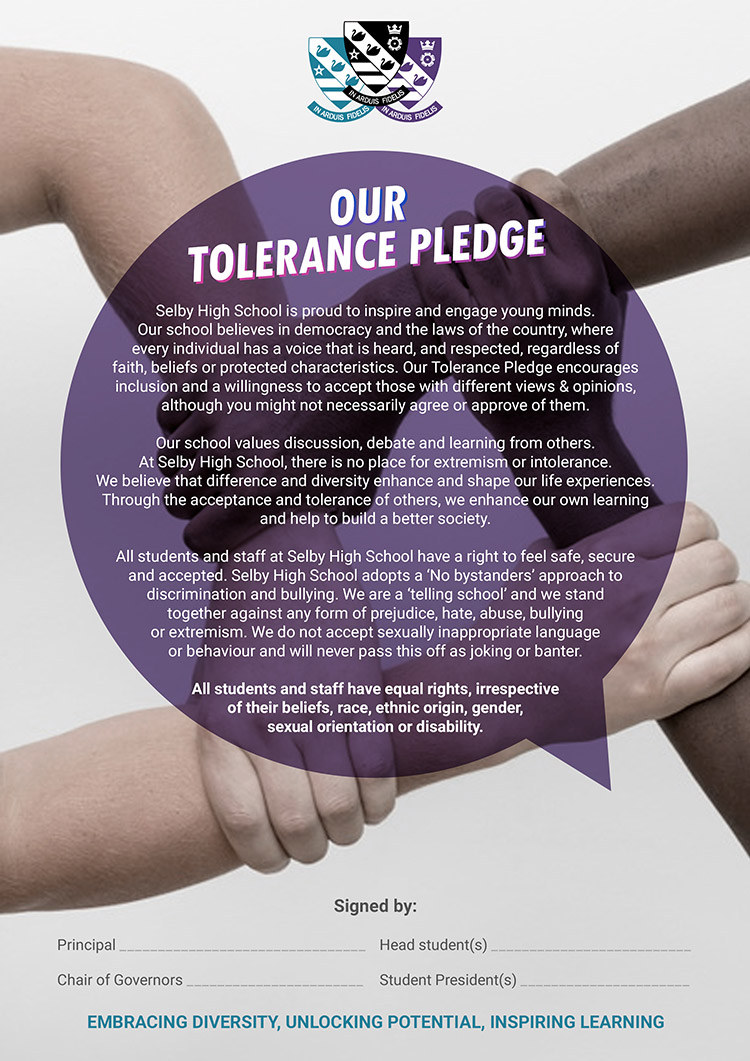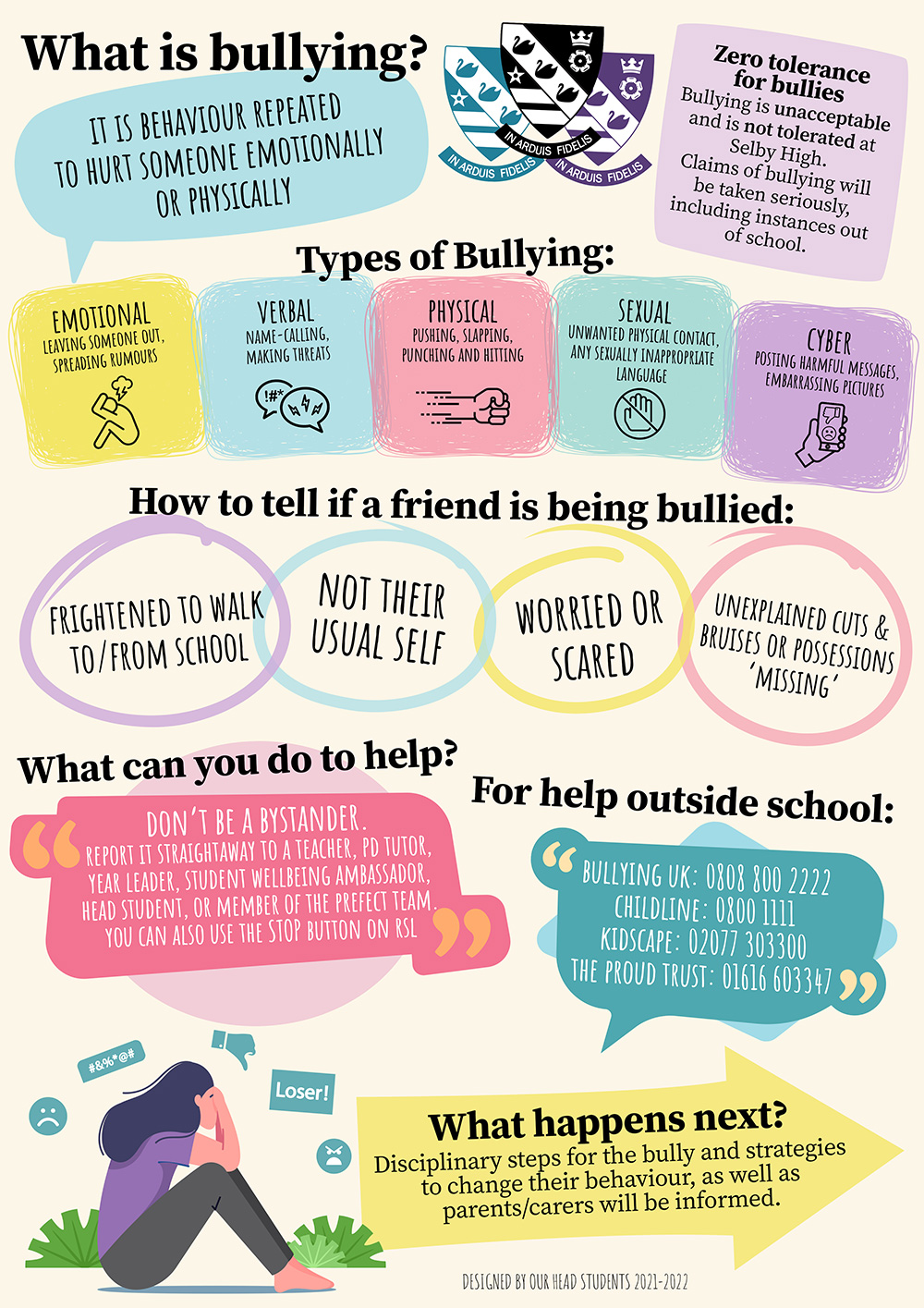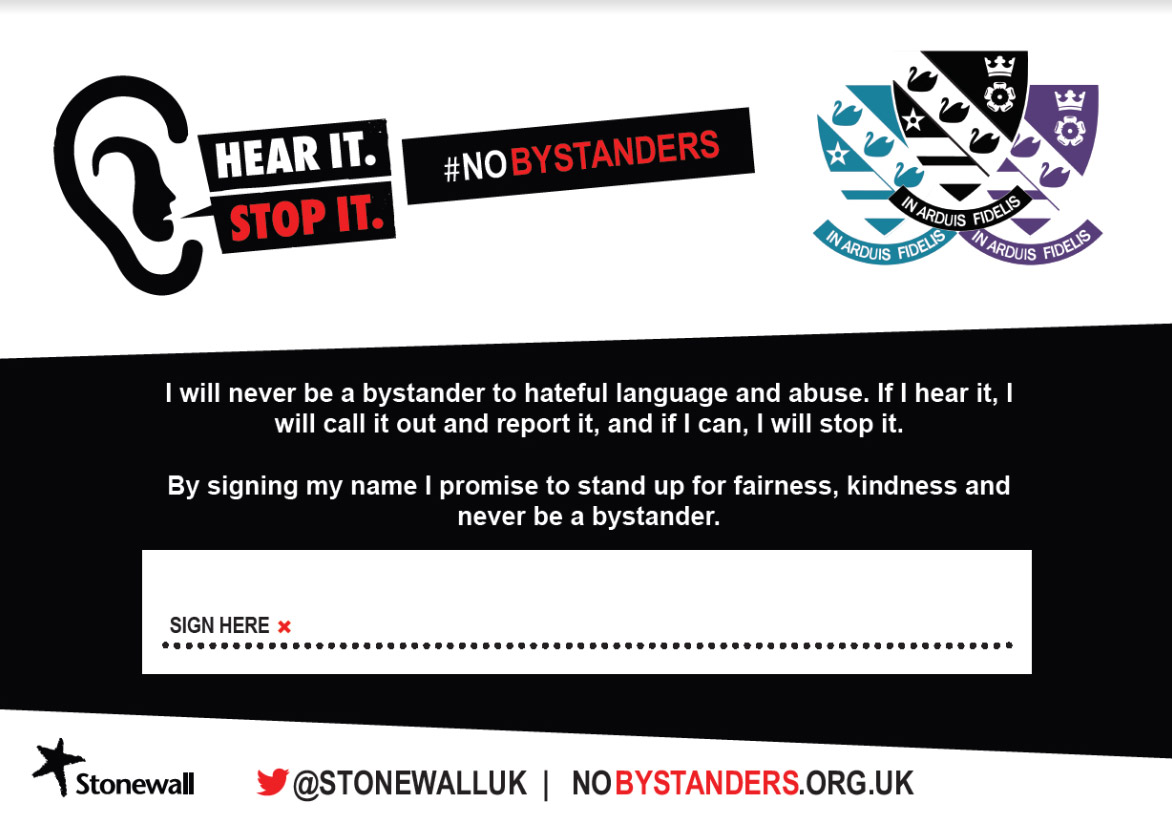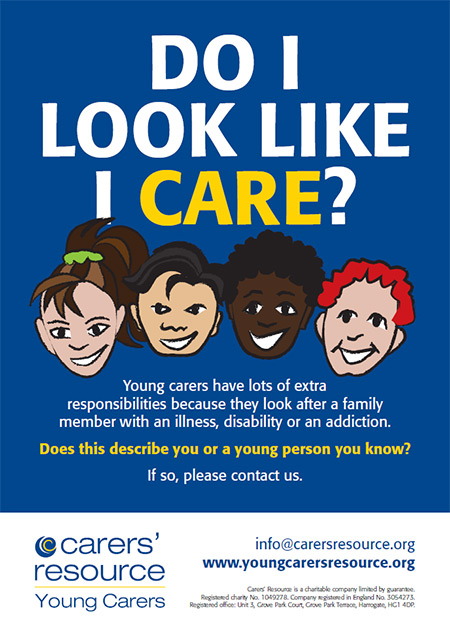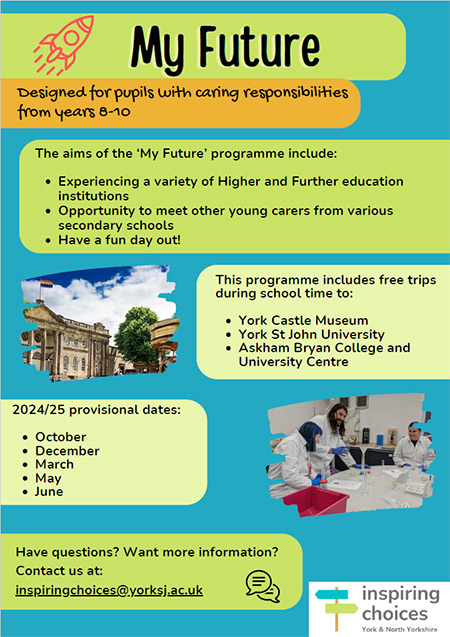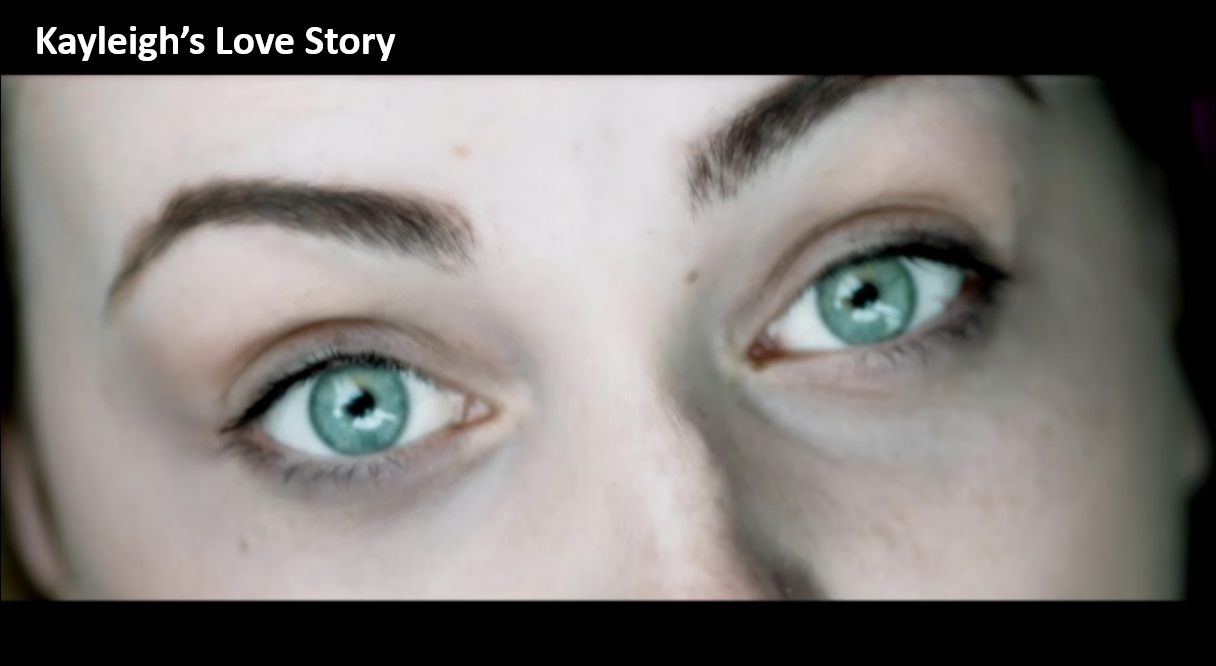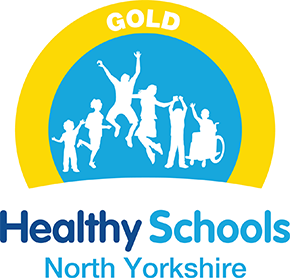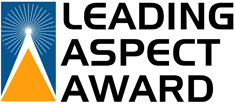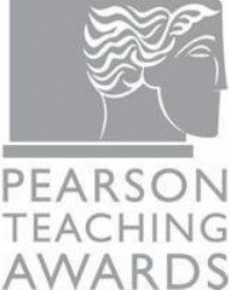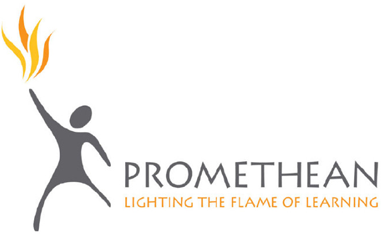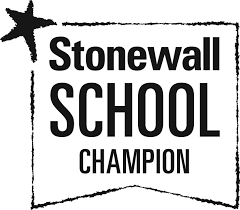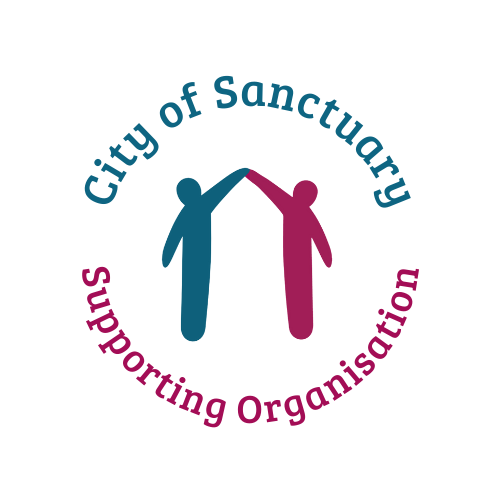Safeguarding & Welfare
Selby High School is committed to Safeguarding and promoting the welfare of all of its students. Each student’s welfare is of paramount importance and we believe that students have a right to learn in a supportive, caring and safe environment. Safeguarding is about ensuring that everyone is safe from harm - safe from bullying, safe from people who could abuse, safe from discrimination or harassment - and that we all feel safe in our environment.
If your child is ever concerned about their safety or well-being or about another student, they should talk to someone such as a parent, carer or guardian, and/or a member of staff at school such as their Form Tutor, Year Manager. a member of the school Senior Leadership Team (SLT), the school's Social Worker or the schools Special Educational needs and disabilities Co-ordinator (SENDCo).
Talking about a problem helps, and if the problem cannot be resolved by the member of staff that your child has talked to, they will find other people to help. School can request support on your behalf from outside agencies such as Children & Families Services, CAMHS, Healthy Child Team and Compass.
- Designated Safeguarding Lead, Mr Matthew Sinclair
- Deputy Designated Safeguarding Leads, Mr Tom Sergeant, Mrs Hannah Harrison, Mr Joe Williams, Mrs Kathryn Whitaker
- SENDCO/Inclusion Manager, Mrs Elizabeth Lockhart
- Safeguarding Officer, Miss Sarah Langridge
In School Support
- The SSC - The Student Support Centre
- The Wellbeing in Mind Team: support with emotional wellbeing.
- Young Carers and Bereavement support.
Year Managers:
- Year 7: Mrs Eunice Mouncer
- Year 8: Mrs Angela Hunter
- Year 9: Mrs Louise Williams
- Year 10: Mrs Sharon Baron
- Year 11: Mrs Sarah Addison
Everyone working in or for our school service shares an objective to help keep children and young people safe by contributing to:
- Providing a safe environment for children and young people to learn and develop in our school setting.
- Identifying children and young people who are suffering or likely to suffer significant harm, and taking appropriate action with the aim of making sure they are kept safe both at home and in our school setting.
Please click here to access the Child Protection Policy
Please click here to access the Child Protection Manual
Please click here for the school Wellbeing section
Safeguarding & Child Protection: Information for Students
Our approach to bullying
Bullying is always unacceptable and will not be tolerated at Selby High School. Claims of bullying will always be taken seriously and acted upon, including where they take place outside the school or on social media at any time.
Selby High School has a “no-bystanders” approach to bullying and discrimination. We aim to be a 'TELLING SCHOOL' which means that ANYONE who knows that bullying is happening is expected to share their concerns. This includes bullying situations within student groups, between staff, and between staff and students.
Reasonable adjustments will be made according to special educational needs and disabilities, and taking into account the needs of vulnerable students.
View our latest Anti-Bullying Policy
We prominently display a number of posters and guides in school so everyone fully understand our approach to bullying (click the artwork for a larger version):
|
Our Tolerance Pledge: |
Our students' guide to bullying: |
|
Our No-Bystanders Approach: |
Useful Contacts and Links
1. Police
2. Children & Families Service – safeguarding, Early Help, Health Child Team
3. North Yorkshire Safeguarding Children Partnership
4. NSPCC
5. Childline
6. NHS 111
7. Young Carers
8. Online safety
9. Sexting and Images
10. Child Sexual Exploitation
11. Bullying
12. Peer on Peer Abuse
13. Extremism & Radicalisation and Prevent Strategy
14. Drugs
15. County Lines
16. Modern Slavery and Human Trafficking
17. Female Genital Mutation
18. Alcohol
19. Smoking
20. Personal Safety
21. Road Safety
22. Wellbeing and Mental Health
23. Cafcass
24. Family Lives
25. LGBTQ
26. Home Alone
27. Child Employment
28. Tips for staying safe
1. Police
 Police: Call 999 if you or someone else is in immediate danger, or if the crime is in progress
Police: Call 999 if you or someone else is in immediate danger, or if the crime is in progress
Call 101 to contact the police if the crime is not an emergency
northyorkshire.police.uk/
northyorkshire.police.uk/staying-safe/keeping-children-safe/
You can also contact Crimestoppers to report a crime anonymously. They will pass the information about the crime to the police. Crimestoppers: Telephone: 0800 555 111
crimestoppers-uk.org
Report It: Whilst the police deal with many types of issues, there are some things that they handle, and that are best reported to other agencies (for example, your local council). The list below will help you to identify the best people to call to deal with your problem.
northyorkshire.police.uk/do-it-online/report-it/
2. Children and Families Service
 Children and Family Care
Children and Family Care
Worried about a child? - If you are worried about a child or a young person under 19, you should contact the children and young people's service. All calls are taken seriously and can be taken in confidence.
In an emergency, always ring 999. Referrals to Safeguarding, Early Help and Healthy Child Team.
Children & Families Service: Call: 01609 780780
northyorks.gov.uk/children-and-family-care
northyorks.gov.uk/children-and-families
3. North Yorkshire Safeguarding Children Partnership
North Yorkshire Safeguarding Children Partnership (NYSCP) aim to ensure all children in North Yorkshire are safe, happy, healthy and achieving. Their website provides information for children & young people, parents and professionals. safeguardingchildren.co.uk/
4. NSPCC
 The NSPCC is the UK's leading children's charity, preventing abuse and helping those affected to recover.
The NSPCC is the UK's leading children's charity, preventing abuse and helping those affected to recover.
Worried about a child? Call: 0808 800 5000
nspcc.org.uk/
nspcc.org.uk/keeping-children-safe/
5. Childline
 CHILDLINE is a free, private and confidential service where you can talk about anything. Childline counsellor online or on the phone from 7:30am–midnight from Monday to Friday, or from 9am–midnight at weekends. Call 0800 1111 www.childline.org.uk/
CHILDLINE is a free, private and confidential service where you can talk about anything. Childline counsellor online or on the phone from 7:30am–midnight from Monday to Friday, or from 9am–midnight at weekends. Call 0800 1111 www.childline.org.uk/
6. NHS 111
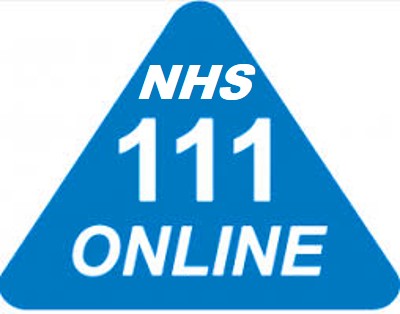 HEALTH: NHS 111 is here to make it easier and quicker for patients to get the right advice or treatment they need, be that for their physical or mental health. 24 hours a day, 7 days a week.
HEALTH: NHS 111 is here to make it easier and quicker for patients to get the right advice or treatment they need, be that for their physical or mental health. 24 hours a day, 7 days a week.
To get help from NHS 111, you can:
- Go online to 111.nhs.uk (for assessment of people aged 5 and over)
- Call 111 for free from a landline or mobile phone.
7. Young Carers - Support & Advice
Young carers are people under 18 who offer substantial, regular, help to a parent, grandparent, brother or sister who has a disability or mental health, drug or alcohol issues. To find out about support services please click here.
Click below to view the latest support leaflets:
8. Online Safety
CEOP: Child exploitation & online protection
Children and young people's online protection
The Child Exploitation and Online Protection Centre is a UK police agency with a difference. It has the teeth of any other police force and works to track offenders wherever they may be. Staying safe online is vital, use the links below to find the latest information and advice on how to stay safe. Find out what’s good, what’s not and what you can do about it. Most importantly, there’s also a place which anyone can use to report if they feel uncomfortable or worried about someone they are chatting to online.If, at any time, young people become concerned that images of them have been uploaded to the internet support is available, it's never too late to get help. ceop.police.uk/safety-centre/
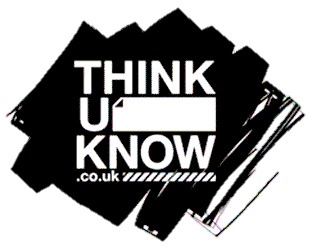 Thinkuknow is the education programme from NCA-CEOP, a UK organisation which protects children both online and offline. Explore one of the six Thinkuknow websites for advice about staying safe when you're on a phone, tablet or computer. thinkuknow.co.uk/
Thinkuknow is the education programme from NCA-CEOP, a UK organisation which protects children both online and offline. Explore one of the six Thinkuknow websites for advice about staying safe when you're on a phone, tablet or computer. thinkuknow.co.uk/
The Imitation Game - Do you really know who you're talking to online?
 Childnet International, is working with others to help make the internet a great and safe place for children. The internet is an amazing place and a wonderful resource and Childnets aim is to help make the internet a great and safe place for children and young people. Find the latest information on the sites and services that you like to use, plus information about mobiles, gaming, downloading, social networking and much more. https://www.childnet.com/
Childnet International, is working with others to help make the internet a great and safe place for children. The internet is an amazing place and a wonderful resource and Childnets aim is to help make the internet a great and safe place for children and young people. Find the latest information on the sites and services that you like to use, plus information about mobiles, gaming, downloading, social networking and much more. https://www.childnet.com/
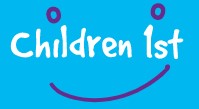 Supporting children and Families
Supporting children and Families
Follow the link for advice on online safety and Sexting: children1st.org.uk/help-for-families/parentline-scotland/guidance-advice/sexting/
NSPCC: Net Aware
Digital Parenting Magazine
Managing Social Media
Details of a number of online social media sites can by found found here
North Yorkshire police have created a new Digital Safeguarding Newsletter . All issues can be viewed here
Online Safety Guides
Online Safety Guides by the National College are posted to our social channels every Wednesday. Follow us on Twitter/X and/or Facebook.
If you don't use Social Media you can access the guides directly here (filter by Guides):
9. Sexting / Images
Sexting: So you got naked online
So you got naked online leaflet
NSPCC: Sexting & young people: the parent's view
NSPCC: Sexting
10. Child Sexual Exploitation
Child sexual exploitation (CSE) is a form of child abuse where children in exploitative situations and relationships receive something such as gifts, money, drugs, status or affection as a result of performing sexual activities, or others performing sexual activities on them.
northyorkshire.police.uk/staying-safe/personal-safety/child-sexual-exploitation/
Kayleigh’s Love Story
This powerful film called “Kayleigh’s Love Story” is a true story about the events that led to the rape and murder of 15-year-old Kayleigh Haywood from Leicestershire. Please watch it with your teenagers and help them understand the dangers of talking to strangers online.
Please note that the film would be certified 15 if shown in a cinema.
Kayleigh's love story
Kayleigh's love story: Polish version
To report a crime, please call the police on 101. In an emergency, always call 999.
11. Bullying
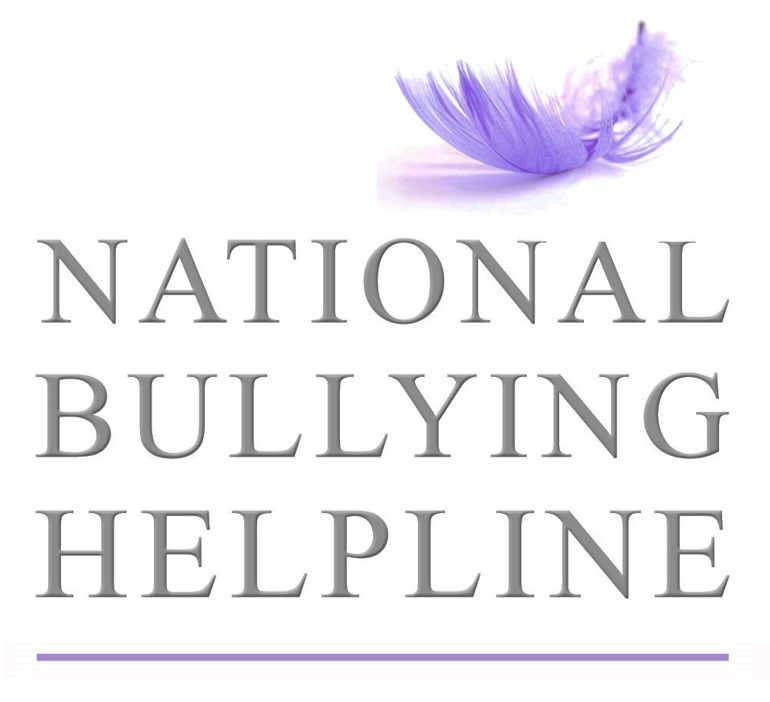 Practical help and advice for children and adults dealing with bullying at school or work.
Practical help and advice for children and adults dealing with bullying at school or work.
The National Bullying Helpline: 0845 22 55 787 Open 9am to 5pm Monday to Friday nationalbullyinghelpline.co.uk/contact
childline.org.uk/info-advice/bullying-abuse-safety/
12. Peer on Peer Abuse
As a school we have a zero tolerance attitude towards peer on peer abuse including bullying, and we will deal with such issues whenever we are made aware of them so please contact either your child’s Form Tutor or Year Manager if you have any concerns.
It is important that students understand what peer on peer abuse is and what it isn’t and equally recognise that other behaviours, whilst not bullying, are just as unacceptable. Please click here to read an explanation of what bullying is and isn’t.
Further information: safeguarding.network/safeguarding-resources/peer-peer-abuse/
13. Extremism & Radicalisation and Prevent Strategy
 This website gives parents, teachers and school leaders practical advice on protecting children from extremism and radicalisation. Information for parents:
This website gives parents, teachers and school leaders practical advice on protecting children from extremism and radicalisation. Information for parents:
educateagainsthate: advice & support
Please click here for information on The Prevent Strategy
14. Drugs
 The truth about drugs - know the score
The truth about drugs - know the score
Drugs: Does your child know more than you?
Follow this links if you would like to find out more information about the facts on drugs, searchable by the name of the drug, written for younger people. Talk To Frank - If you would like to know more information from the UK Government backed site covering all drug related questions in a no nonsense frank way, follow this link. talktofrank.com/
Confidential advice: Call 0300 123 6600 or Text 82111
15. County Lines
 |
 |
County Lines – drug dealing
“County Lines” is the term used to describe a form of organised crime where criminals based in urban areas pressurise vulnerable people and children to transport, store and sell drugs in smaller county towns. It takes its name from the phone lines used by organised crime gangs to communicate between towns.
“Cuckooing”
An issue of concern in North Yorkshire is the practice of “cuckooing” where county lines drug dealers take over a vulnerable person’s home to store their drugs and cash and use it as base for dealing drugs.
Child Criminal Exploitation
Similar to child sexual exploitation, any young person could be at risk of being targeted by drug gangs, but some are particularly susceptible including those without a stable home life, who’ve experienced domestic violence, parental drug abuse or criminality, social isolation or exclusion, homelessness or insecure accommodation, learning or physical disability, mental health problems, associations with criminality or being in care, particularly a disrupted history of care.
Report to the Police: Call 999 if you or someone else is in immediate danger, or if the crime is in progress.
Call 101 to contact the police if the crime is not an emergency.
nationalcrimeagency: county lines
northyorkshire.police.uk: county lines drug dealing
16. Modern slavery and human trafficking
17. Female genital mutilation (FGM)
Female genital mutilation is illegal. We've got advice to help you keep children and young people safe. If you are worried about someone who is at risk of FGM or has had FGM, you must share this information with the Children and Families Service or the Police.
nspcc.org.uk: FGM
forwarduk.org.uk/
18. Alcohol
 Free, confidential helpline for anyone who is concerned about their drinking, or someone else's. Helpline: 0300 123 1110 (weekdays 9am–8pm, weekends 11am–4pm).
Free, confidential helpline for anyone who is concerned about their drinking, or someone else's. Helpline: 0300 123 1110 (weekdays 9am–8pm, weekends 11am–4pm).
drinkaware.co.uk: alcohol support services
Alcoholics Anonymous (AA) - Helpline: 0800 917 7650
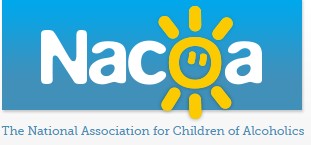 Information, advice and support for children of alcohol-dependent parents and anyone concerned with the welfare of a child.
Information, advice and support for children of alcohol-dependent parents and anyone concerned with the welfare of a child.
Helpline: 0800 358 3456
nacoa.org.uk/
19. Smoking
 Smokefree: NHS Smoking
Smokefree: NHS Smoking
Helpline: 0800 169 0169
smokefree.gov/
20. Personal Safety
 |
 |
21. Road Safety
 At Selby High School we endeavour to instil in our students a responsibility to take all aspects of their personal safety seriously, including road safety. Brake, the road safety charity, states that, ‘Road safety is not just for younger children. As students get older, the risks increase. Students need to walk, cycle and play safely without supervision. They also need to understand how to be safer passengers in vehicles, including on school buses, and then, if they learn, how to be safe motorbike riders and car drivers’.
At Selby High School we endeavour to instil in our students a responsibility to take all aspects of their personal safety seriously, including road safety. Brake, the road safety charity, states that, ‘Road safety is not just for younger children. As students get older, the risks increase. Students need to walk, cycle and play safely without supervision. They also need to understand how to be safer passengers in vehicles, including on school buses, and then, if they learn, how to be safe motorbike riders and car drivers’.
Students need to study their road safety.
A - Awareness
B - Behaviour
C - Choice
For further information on road safety visit: brake.org.uk/info-and-resources
22. Wellbeing and Mental Health
Children’s Mental Health: NSPCC website
Please click here for the school WELLBEING section
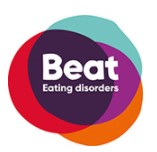 Beating Eating Disorders
Beating Eating Disorders
You are never alone with your eating disorder. We are here to support people who have or are worried they have an eating disorder, as well as others affected, such as friends and family members. Helplines are open 365 days a year from 9am–8pm during the week, and 4pm–8pm on weekends and bank holidays. beateatingdisorders.org.uk/
Helpline: 0808 801 0677
Studentline: 0808 801 0811
Youthline: 0808 801 0711
Counselling  The Samaritans: Whatever you're going through, a Samaritan will face it with you. We're here 24 hours a day, 365 days a year.
The Samaritans: Whatever you're going through, a Samaritan will face it with you. We're here 24 hours a day, 365 days a year.
Call: 116 123 free
Email: jo@samaritans.org
Self Help App: selfhelp.samaritans.org/
samaritans.org/
 The Mix provides free information and support for under 25s what ever challenge you are facing. visit themix.org.uk
The Mix provides free information and support for under 25s what ever challenge you are facing. visit themix.org.uk- Call: 0808 808 4994 (7 days a week from 4pm to 11pm)
- Crisis messenger (24/7 support if you need help right now)
- Text THEMIX to 85258
 KOOTH: Your online mental wellbeing community
KOOTH: Your online mental wellbeing community
Free, safe and anonymous support
Online counselling for young people
kooth.com/
23. Cafcass
Children and Family Court Advisory and Support Service.
 Cafcass is the voice of children in the family courts and helps to ensure that children’s welfare is put first during proceedings.
Cafcass is the voice of children in the family courts and helps to ensure that children’s welfare is put first during proceedings.
Cafcass call centre number: 0300 456 4000
24. Family Lives
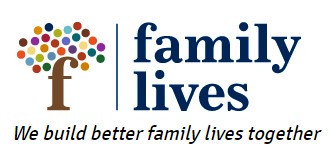
Parent and family support organisation
Family Lives: Call 0808 800 222
familylives.org.uk/
25. LGBTQ
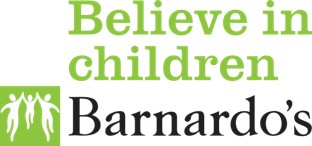 |
 |
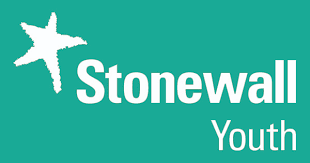 |
26. Home Alone
NSPCC Guidance on “Is my child ready to be left alone?”
There is no legal age at which children may be left home alone, but parents can be prosecuted for neglect if it puts them at risk of injury or suffering.
- Children under 12 years old shouldn't be left home alone for long
- Children under 16 years old shouldn't be left alone overnight
27. Child Employment
Child Employment
Restrictions on child employment
There are several restrictions on when and where children are allowed to work.
Children are not allowed to work:
- without an employment permit issued by the education department of the local council, if this is required by local bylaws
- in places like a factory or industrial site
- during school hours
- before 7am or after 7pm
- for more than one hour before school (unless local bylaws allow it)
- for more than 4 hours without taking a break of at least 1 hour
- in any work that may be harmful to their health, well-being or education
- without having a 2-week break from any work during the school holidays in each calendar year
There are also special rules which only apply during term times and school holiday times.
Term time rules
During term time children can only work a maximum of 12 hours a week. This includes:
- a maximum of 2 hours on school days and Sundays
- a maximum of 5 hours on Saturdays for 13 to 14-year-olds, or 8 hours for 15 to 16-year-olds
School holiday rules
During school holidays 13 to 14-year-olds are only allowed to work a maximum of 25 hours a week. This includes:
- a maximum of 5 hours on weekdays and Saturdays
- a maximum of 2 hours on Sunday
During school holidays 15 to 16-year-olds can only work a maximum of 35 hours a week. This includes:
- a maximum of 8 hours on weekdays and Saturdays
- a maximum of 2 hours on Sunday
Local rules on the types of work children can do
Local bylaws list the jobs that children cannot do. If a job is on this list, a child under the minimum school leaving age cannot do this work.
Local bylaws may also have other restrictions on working hours, conditions of work and the type of employment.
Contact your local council’s education department or education welfare service for more information.
gov.uk/child-employment/restrictions-on-child-employment
Child Employment Permit link: northyorks.gov.uk/licence-child-employment
28. Tips for keeping safe
We want you to enjoy your free time but we also want you to stay safe. Follow the simple tips below to help you stay safe and feel more confident.
- Always tell an adult where you are going and inform them of where you are at all times
- Don't mess about near railway lines, overhead electricity lines or roads
- Be sensible near water and only go swimming if there is a lifeguard
- Stay SMART online. If in doubt tell an adult
- When it is warm, if you are going outside, you should protect yourself against the sun by applying sunscreen, wearing a hat, staying out of the midday sun and drinking plenty of water
- Don’t walk around alone at night
- Stick to footpaths and well-lit areas. Never take a short cut through a dark alleyway just to get home earlier
- Don't show off your mobile phone or iPod to groups of people
- Act confidently, even if you don't feel it
- If you think someone is following you, cross to the other side of the road and keep walking. If you still think they're following you, head for a well-lit area where there are lots of people
- Always ask for help if you need it


